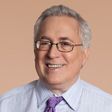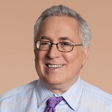Time-Tested Advice for Long-Term Investors
Learn from the Kahns, ultra-patient (and successful) value investors who often hold stocks for 20 years.

Profit and prosper with the best of Kiplinger's advice on investing, taxes, retirement, personal finance and much more. Delivered daily. Enter your email in the box and click Sign Me Up.
You are now subscribed
Your newsletter sign-up was successful
Want to add more newsletters?

Delivered daily
Kiplinger Today
Profit and prosper with the best of Kiplinger's advice on investing, taxes, retirement, personal finance and much more delivered daily. Smart money moves start here.

Sent five days a week
Kiplinger A Step Ahead
Get practical help to make better financial decisions in your everyday life, from spending to savings on top deals.

Delivered daily
Kiplinger Closing Bell
Get today's biggest financial and investing headlines delivered to your inbox every day the U.S. stock market is open.

Sent twice a week
Kiplinger Adviser Intel
Financial pros across the country share best practices and fresh tactics to preserve and grow your wealth.

Delivered weekly
Kiplinger Tax Tips
Trim your federal and state tax bills with practical tax-planning and tax-cutting strategies.

Sent twice a week
Kiplinger Retirement Tips
Your twice-a-week guide to planning and enjoying a financially secure and richly rewarding retirement

Sent bimonthly.
Kiplinger Adviser Angle
Insights for advisers, wealth managers and other financial professionals.

Sent twice a week
Kiplinger Investing Weekly
Your twice-a-week roundup of promising stocks, funds, companies and industries you should consider, ones you should avoid, and why.

Sent weekly for six weeks
Kiplinger Invest for Retirement
Your step-by-step six-part series on how to invest for retirement, from devising a successful strategy to exactly which investments to choose.
There is no family on Wall Street like the Kahns. Kahn Brothers, which was founded in 1978 and today manages almost $1 billion, has produced superb results. From the start of 2000 through the end of March 2014, its stock picks returned 11% annualized, beating Standard & Poor’s 500-stock index by an average of 7.8 percentage points per year. Founder Irving Kahn is, at 108, the world’s oldest money manager, and he still goes to the office three days a week. He scoffs at any thought of retirement. “Aside from my marriage and family, nothing in my life has been as interesting as this job,” he says.
Reaching triple digits seems to be the norm in the Kahn family. Irving Kahn is the last of four siblings who all reached the century mark. The Albert Einstein College of Medicine is studying their genes.
The biggest influence on Kahn’s investing life was Benjamin Graham, for whom Kahn served as a teaching assistant at Columbia University. “The main lesson I learned from Ben was the distinction between investment and speculation,” says Kahn. “It’s still the most important lesson an investor needs to know.” Kahn named his third son Thomas Graham Kahn.
From just $107.88 $24.99 for Kiplinger Personal Finance
Become a smarter, better informed investor. Subscribe from just $107.88 $24.99, plus get up to 4 Special Issues

Sign up for Kiplinger’s Free Newsletters
Profit and prosper with the best of expert advice on investing, taxes, retirement, personal finance and more - straight to your e-mail.
Profit and prosper with the best of expert advice - straight to your e-mail.
Longtime holding. The Kahns are ultra-patient value investors who often hold stocks for 20 years. They bought shares of New York Community Bancorp (symbol NYCB) in 1993 for a bit more than $1 apiece (adjusted for subsequent splits). Today, the bank trades at $16 and boasts a 6.3% yield.
The obsessive Irving used to read annual reports at the dinner table, says son Tom, 72, who runs Kahn Brothers day-to-day. Tom, who sits behind Graham’s old desk, sounds less obsessive. “Ben Graham was very important to us, but he had a more formulistic approach than we do,” Tom says. “We also think management is extremely important. We prefer to eyeball the CEO and take a read on his character.”
Tom has already had two meetings with Mark Thompson, the CEO of the New York Times Co. (NYT), the firm’s largest holding. “We get very good vibes from Thompson,” Tom says. “He understands that the Times is a brand, like Coke or Nike.”
Tom says the Times possesses an asset that many investors are unaware of. In 2019, the firm can buy back its share of the new Times building for $250 million. “That share is already worth a billion or a billion and a quarter,” he says. What about growth? “The Times is a factory that produces high-quality journalism,” Tom says. “There will always be a global demand for that.”
What has the firm been buying lately? “We’re nibbling on BlackBerry (BBRY),” says Tom. “[CEO] John Chen is a good man.” The Kahns like the Canadian company’s phone and network security business—arguably the best in the world—and the fact that the stock, at $11 a share, sells for close to the company’s liquidation value.
Tom says nothing about BlackBerry’s profits, which have been nonexistent since 2011. In fact, the subject of earnings seems to disgust him. “The obsession with earnings results is crazy,” he says. “Does a company beat the number it helped make up? Who cares? The important question is, Do you have a good captain and is he steering the company in the right direction?”
Will Tom follow in his father’s footsteps, the ones that lead to the office forever? Perhaps. Says Tom, “I have no plans to retire, but I’d like to work less and travel more.”
Columnist Andrew Feinberg manages a New York City–based hedge fund called CJA Partners. His fund owns shares of BlackBerry and the New York Times Co.
Profit and prosper with the best of Kiplinger's advice on investing, taxes, retirement, personal finance and much more. Delivered daily. Enter your email in the box and click Sign Me Up.

-
 The Tool You Need to Avoid a Post-Divorce Administrative Nightmare
The Tool You Need to Avoid a Post-Divorce Administrative NightmareLearn why a divorce decree isn’t enough to protect your retirement assets. You need a QDRO to divide the accounts to avoid paying penalties or income tax.
-
 When Estate Plans Don't Include Tax Plans, All Bets Are Off
When Estate Plans Don't Include Tax Plans, All Bets Are OffEstate plans aren't as effective as they can be if tax plans are considered separately. Here's what you stand to gain when the two strategies are aligned.
-
 Relying on Real Estate in Retirement? Avoid These 3 Mistakes
Relying on Real Estate in Retirement? Avoid These 3 MistakesThe keys to successful real estate planning for retirees: Stop thinking of property income as a reliable paycheck, start planning for tax consequences and structure your assets early to maintain flexibility.
-
 Finding the Right Financial Planner During a Recession
Finding the Right Financial Planner During a RecessionFinancial Advisers Navigating your way through a financial downturn takes resolve and know-how. Having the right person at your side during this touchy time could be critical.
-
 What You Should Look for in a Financial Professional
What You Should Look for in a Financial ProfessionalFinancial Advisers The vast majority of Americans value the advice of a financial professional. Here’s how to choose the right one for you.
-
 How Psychology Affects Your Search for a Financial Adviser
How Psychology Affects Your Search for a Financial AdviserFinancial Advisers Your emotional relationship with your financial planner plays a big role in how successful your collaboration will be, so picking a person you click with should be a high priority.
-
 Finding a Modern Financial Adviser: 3 Questions to Ask
Finding a Modern Financial Adviser: 3 Questions to AskFinancial Advisers Today’s challenging economic climate calls for a financial adviser equipped to adapt. Here’s how to see if yours is up to the task.
-
 5 Quick and Dirty Questions to Pick a Financial Adviser
5 Quick and Dirty Questions to Pick a Financial AdviserFinancial Advisers Yes, you can boil a complicated vetting process down to just five quick questions. Or you could dig deeper. The choice is yours.
-
 What to Do When You’re the Executor
What to Do When You’re the ExecutorFinancial Planning You’ll likely need professional help, including an attorney with estate-planning experience, a tax pro and a financial adviser.
-
 Do You Need a Financial Planner? 5 Points for and Against Hiring One
Do You Need a Financial Planner? 5 Points for and Against Hiring OneFinancial Advisers Some folks just don’t need a financial professional, or may not be in a place to get the most value possible from the relationship. However, others can’t afford to go without one. Which are you?
-
 Is Your Financial Planner Acting in Your Best Interest?
Is Your Financial Planner Acting in Your Best Interest?Financial Advisers Not all financial professionals are held to the same standards. Some must meet a higher bar than others. What type of adviser are you working with?